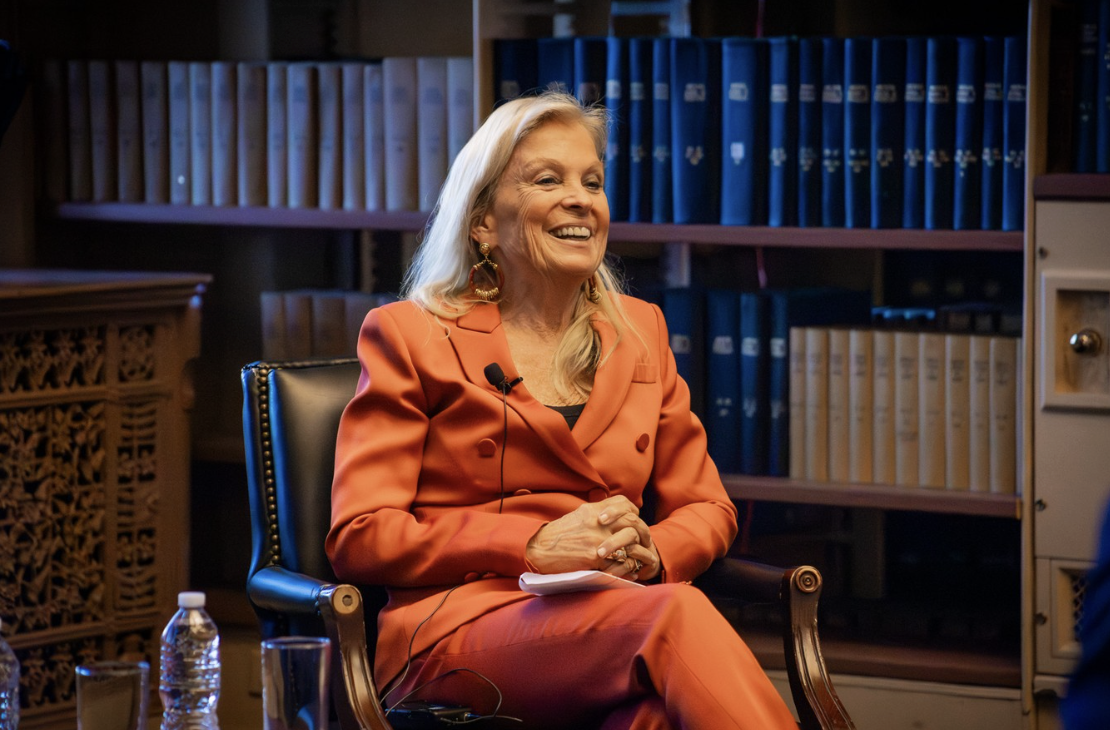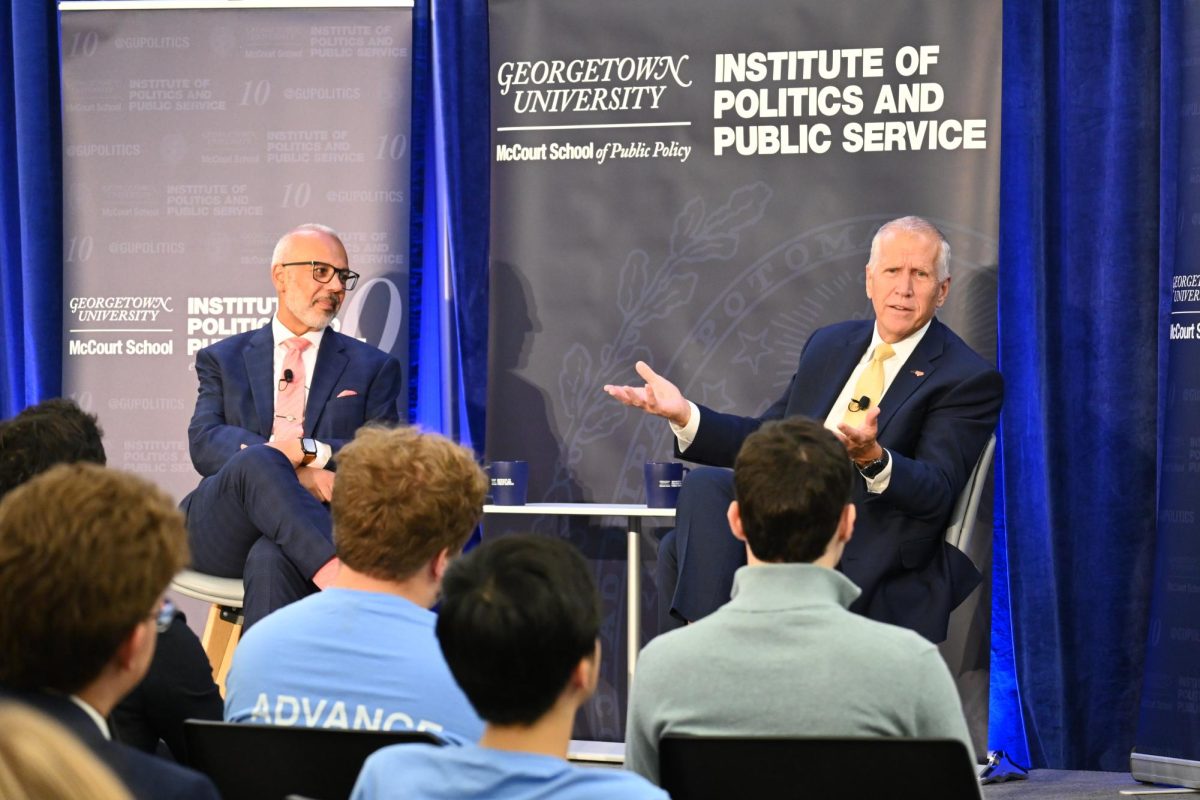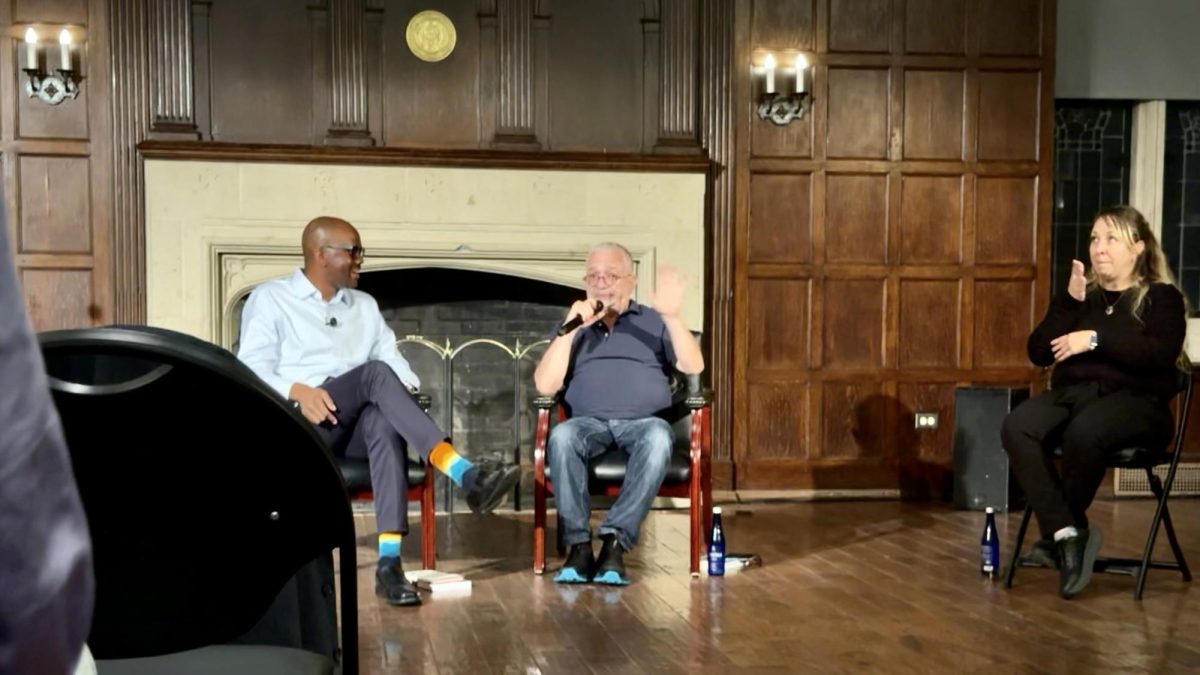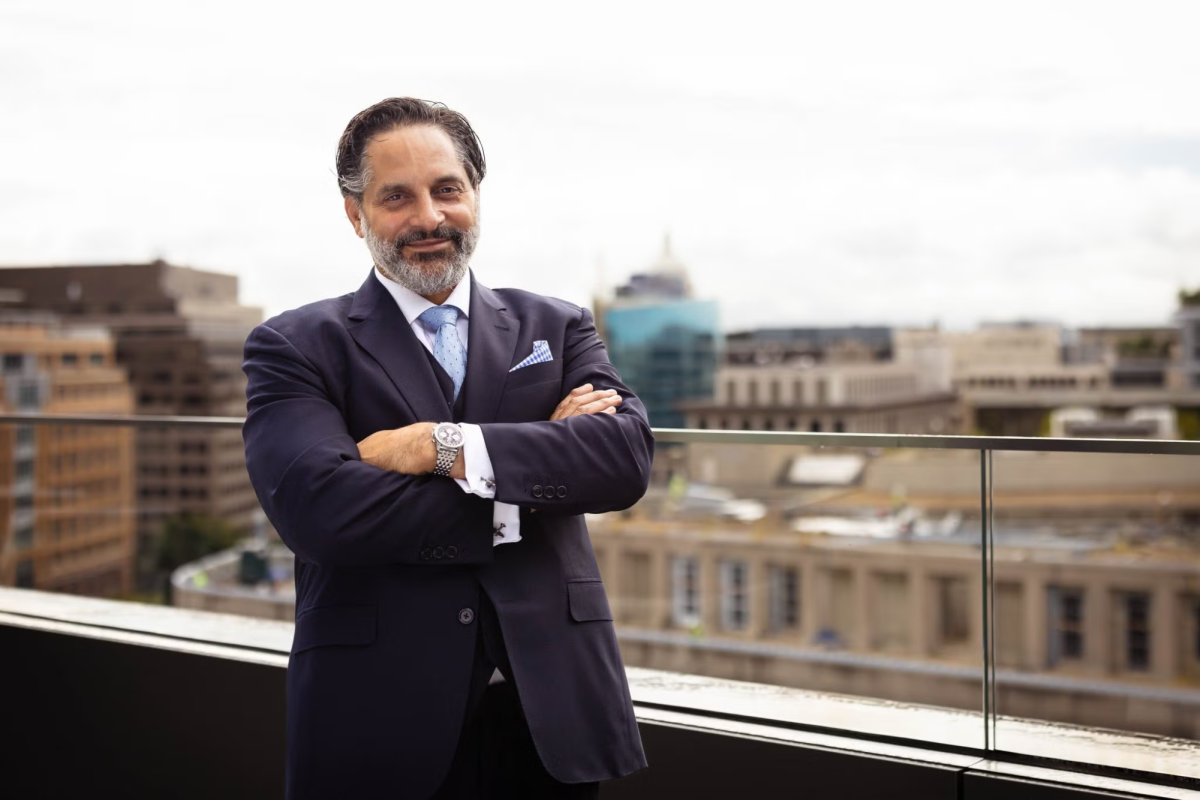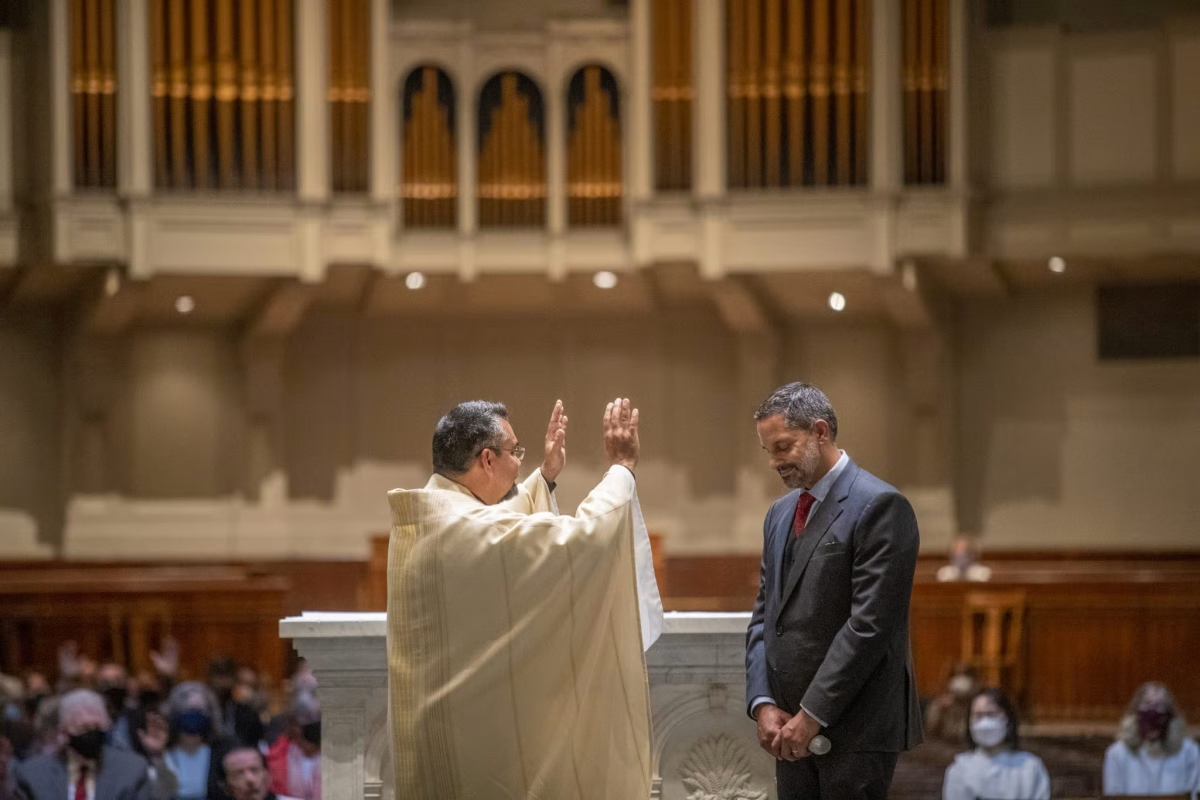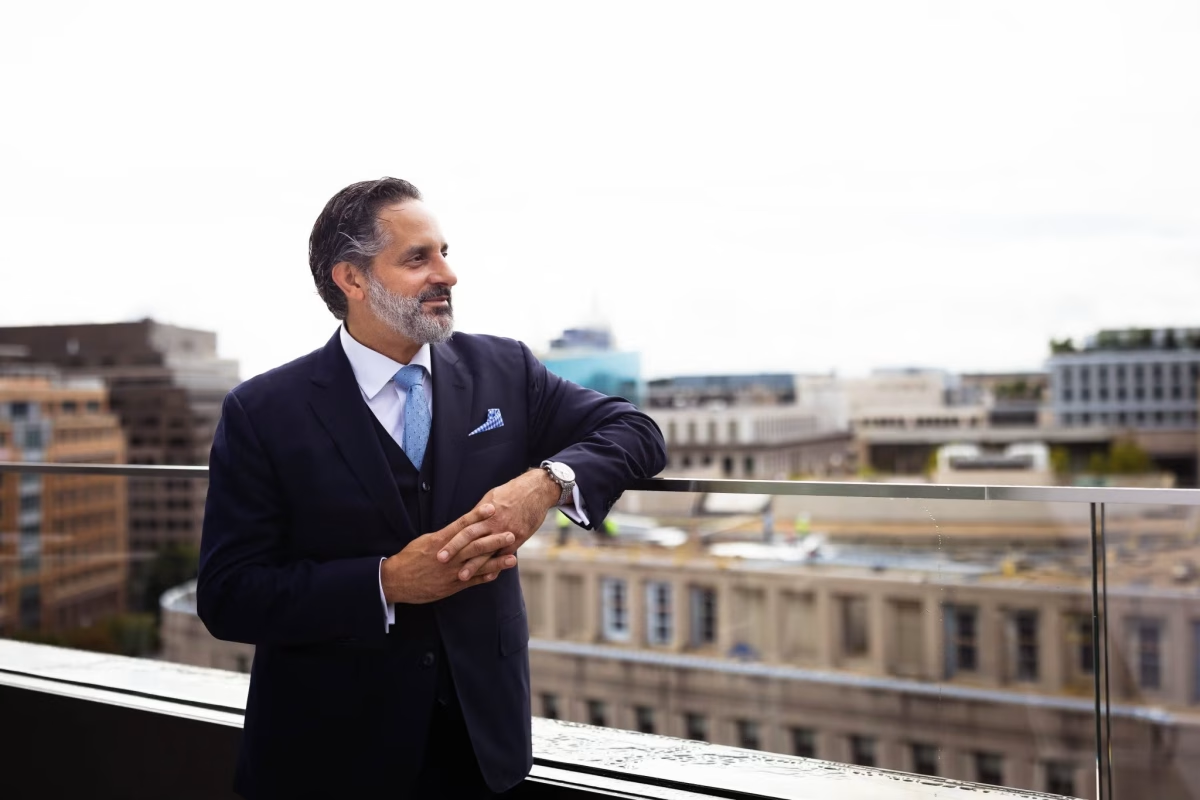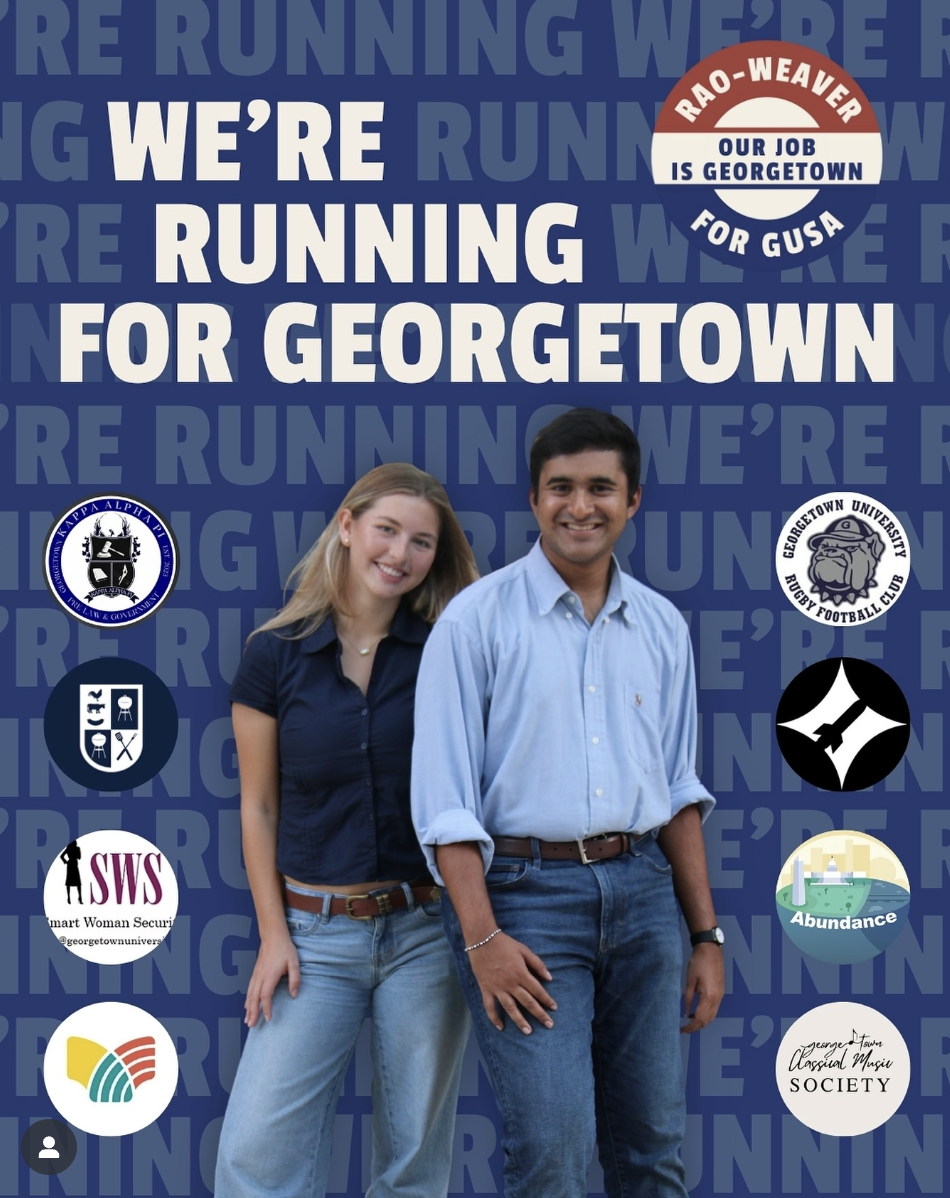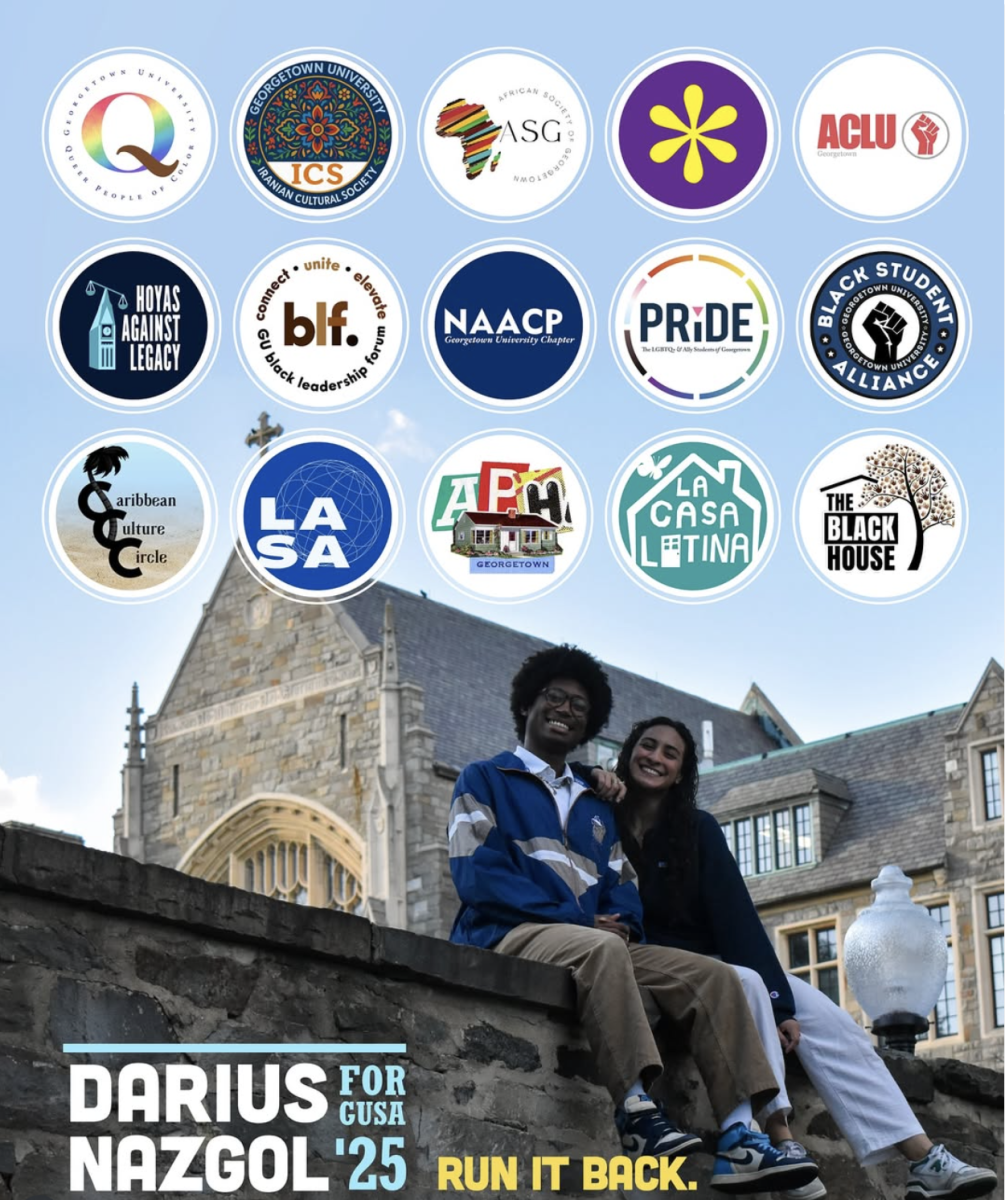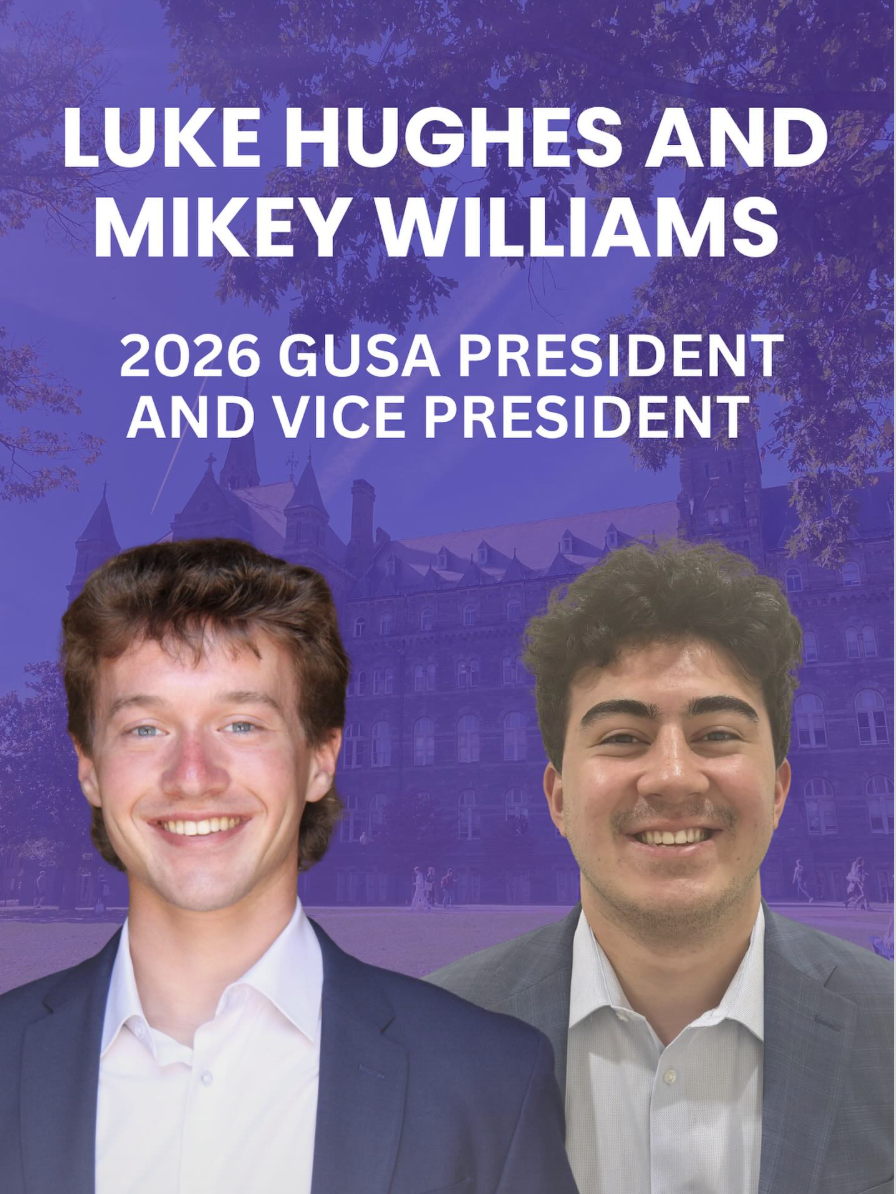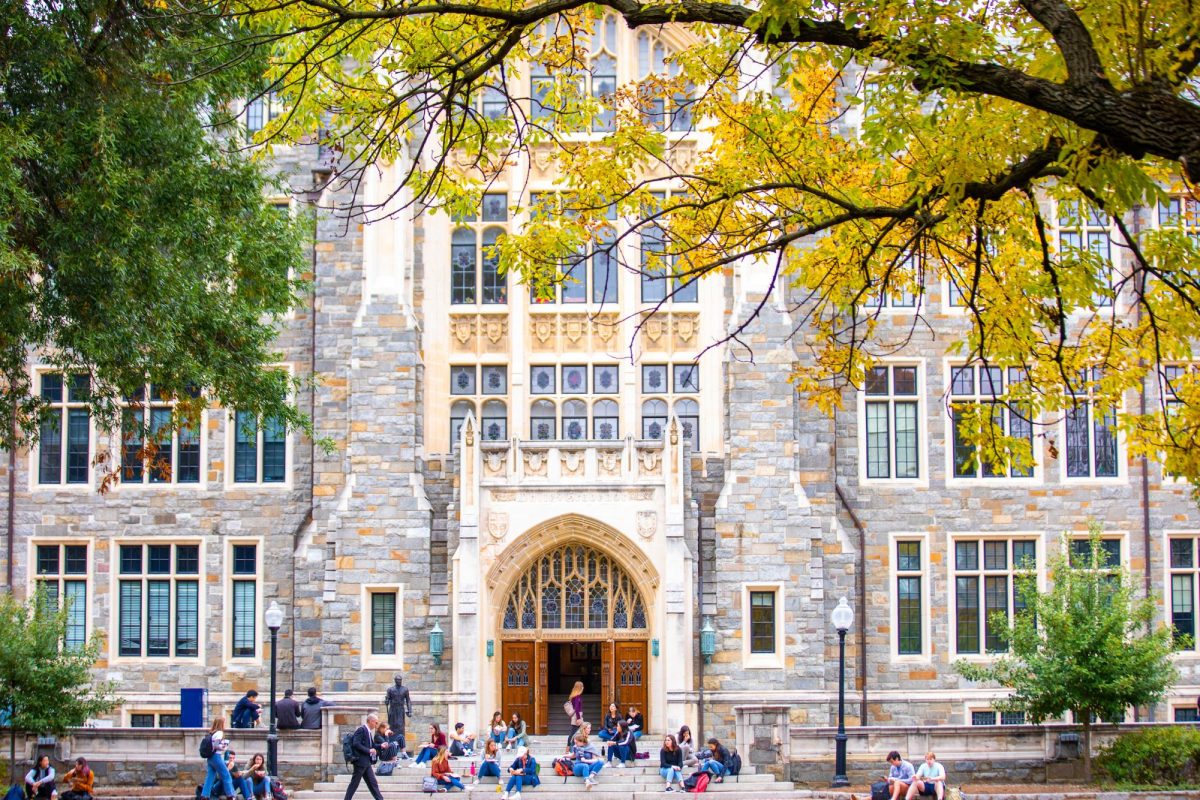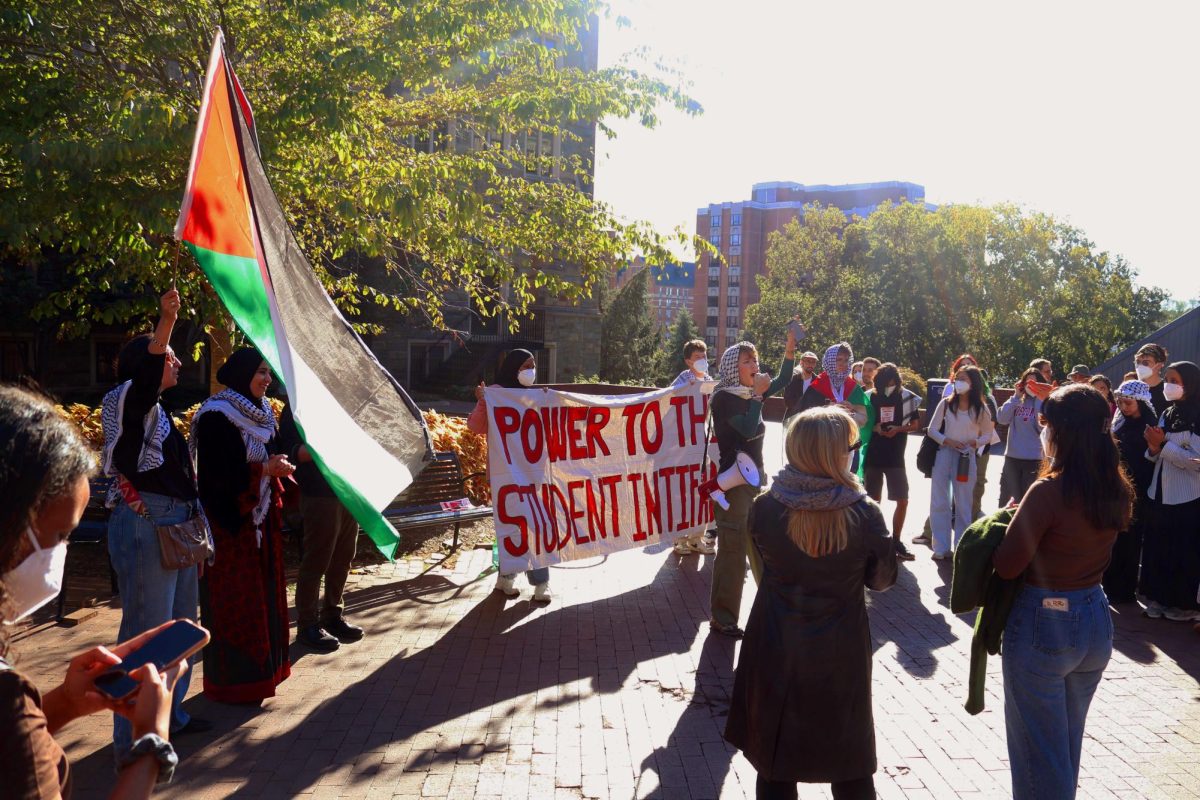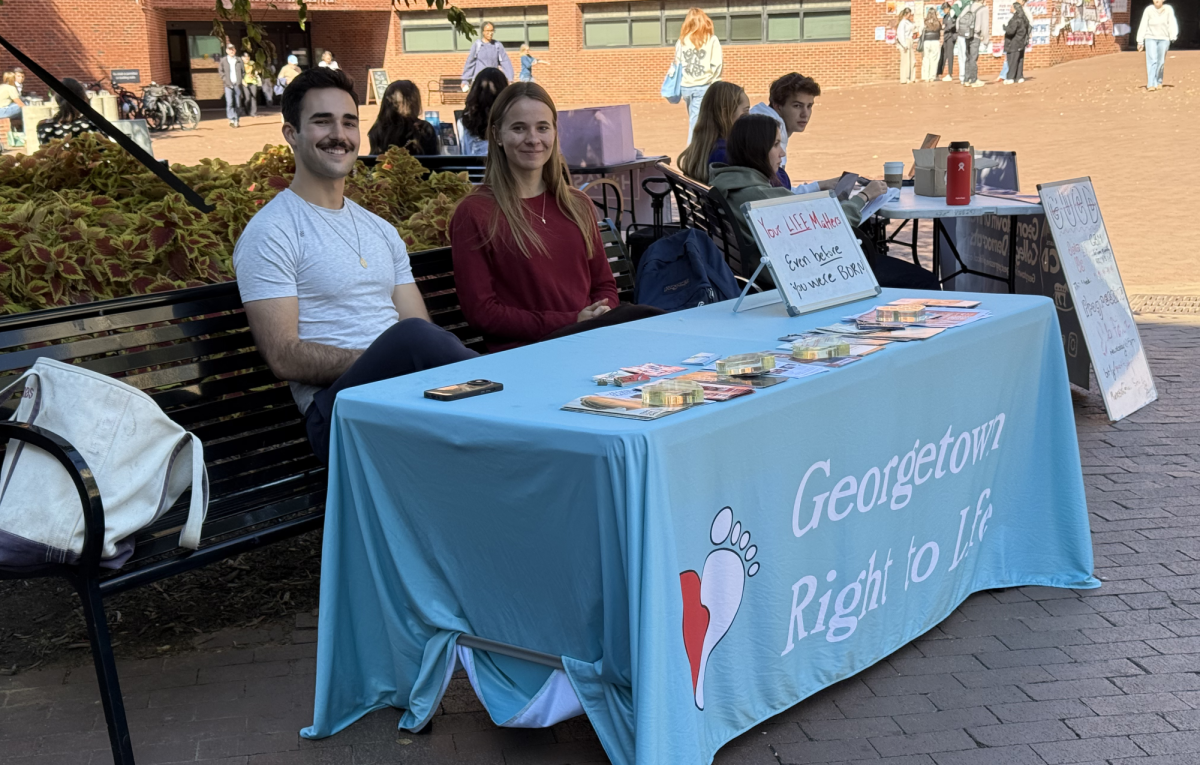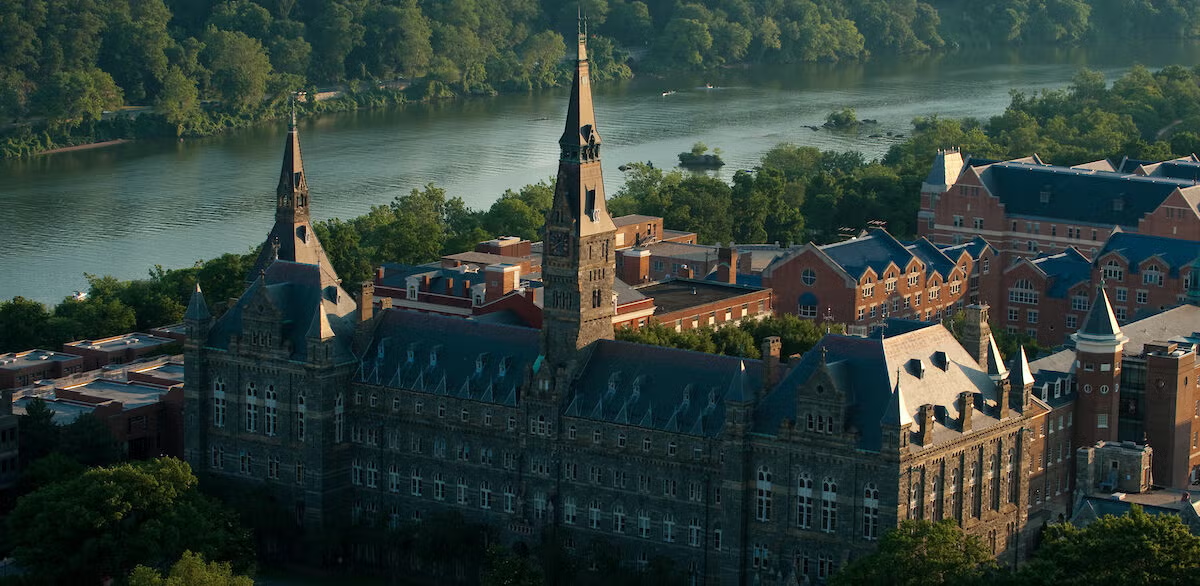Two prominent former politicians, one Palestinian and one Israeli, called for increased dialogue between Palestinians and Israelis at a Georgetown University event Oct. 16 while roughly two dozen students protested outside the building.
Former Israeli Prime Minister Ehud Olmert and former Palestinian National Authority Minister of Foreign Affairs Nasser Al-Kidwa debated the viability of a permanent solution to the ongoing Israel-Hamas war at an event to foster dialogue. Around 25 Georgetown community members simultaneously gathered outside the Hariri Building during the event, which was held in Lohrfink Auditorium, to protest the decision to invite Olmert and Al-Kidwa.
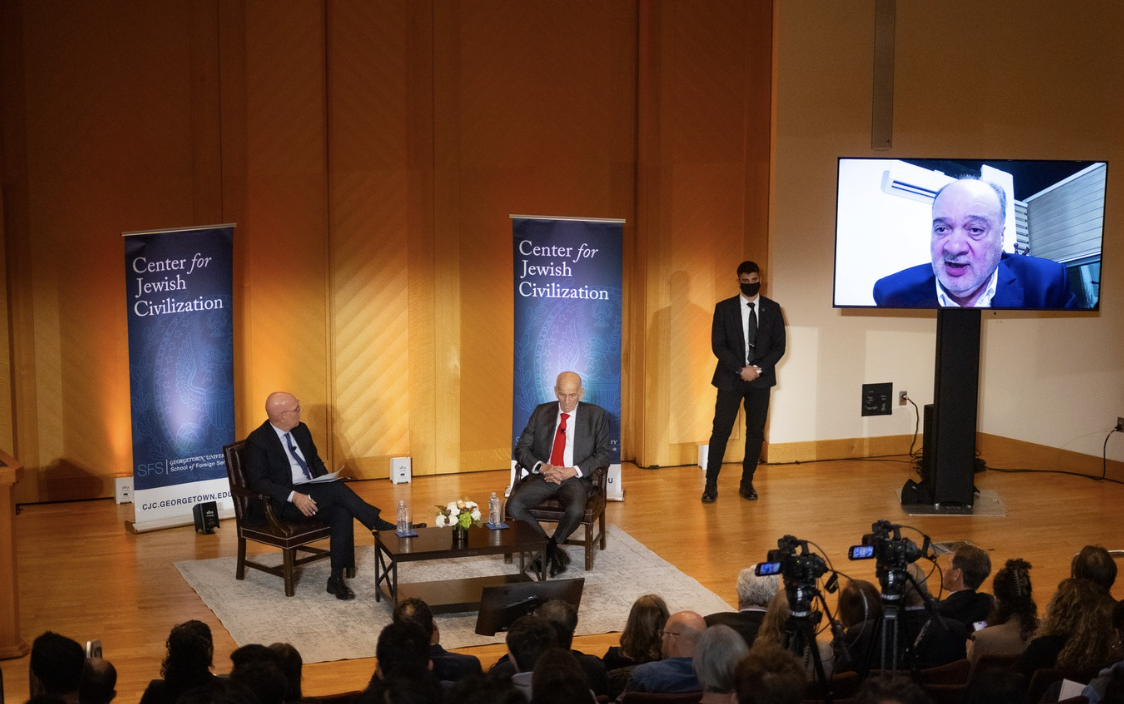
Al-Kidwa said dialogue is the only way forward at this stage of the conflict.
“I do understand that it’s not easy, while the blood is being shed, for people to believe in dialogue and to engage in one,” Al-Kidwa said at the event. “But nevertheless, I think that this is the only option before us. We don’t have other options. We need to engage in dialogue, and dialogue can lead to solutions and solutions and salvage the whole situation.”
Olmert said he first recognized the disparities between Israelis and Palestinians during his 1993-2003 tenure as mayor of Jerusalem, emphasizing the necessity of recognizing both Israelis’ and Palestinians’ needs.
“I found that Israel is way past any serious attempts to create an environment of living together with the basic principles of equality that I was brought up all my life to believe,” Olmert said at the event. “And then very quickly I understood that there is no way that we can pretend to live together if we don’t recognize the right of Palestinians to self-determination and to their own exclusive political sovereignty in the land that they control.”
While protesters gathered outside, at least one person attempted to disrupt the event inside Hariri, though Georgetown University Police Department (GUPD) officers forcibly removed them from the event entrance, according to a video posted by GU SCAR, a student protest coalition.
A university spokesperson said the event was not disrupted and GUPD officers followed Georgetown’s Policy on Speech and Expression, which affords university community members the right to free speech and dialogue under certain circumstances.
“While it is recognized that not everyone may share the same views as a speaker, it is expected that everyone in attendance at University events respects the right of a speaker to share their views and ideas by not causing a disruption to the event’s activities,” the spokesperson wrote to The Hoya. “Georgetown will take appropriate action according to its policies, and any member of the Georgetown community who is identified and found to have violated University policy will face appropriate sanctions.”
The group of protesters outside Hariri gathered near the first-floor entrance before marching to the third-floor entrance, where GUPD officers blocked the doors. The Hoya observed GUPD officers and Erika Cohen-Derr, the university’s associate vice president for student affairs, telling the protesters to move back to the ground level. The protesters complied after about five minutes.
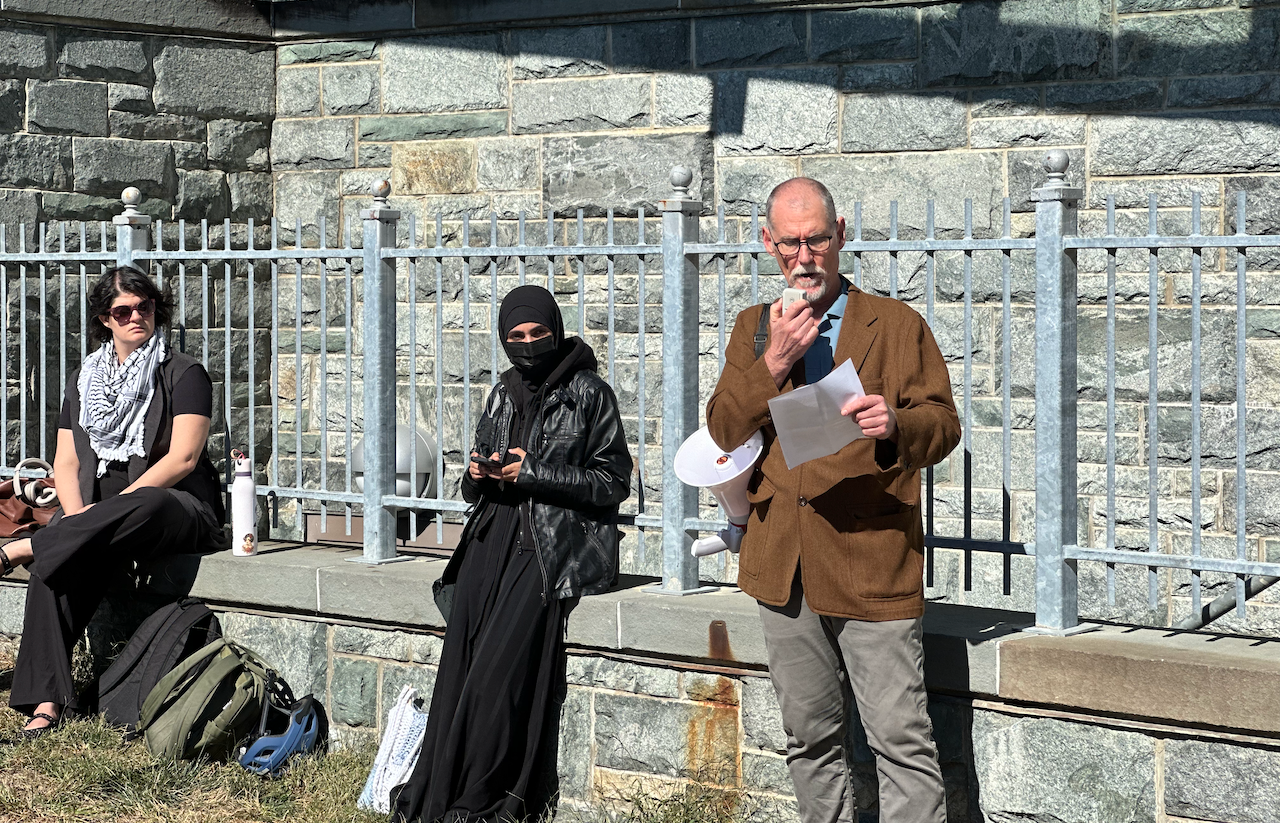
The protesters contended Olmert and Al-Kidwa manipulated the peace process and do not truly represent Palestinian interests.
In speeches during their rally, protesters accused Olmert of committing war crimes against the Palestinian people during his time as prime minister, referring to his leadership during Israel’s 34-day war in Lebanon in 2006 during which Israeli forces killed over 1,000 Lebanese citizens.
Elliot Colla, a member of Georgetown’s chapter of Faculty and Staff for Justice in Palestine (FSJP), said Georgetown is disregarding its Jesuit values.
“Today’s invitation to Georgetown is a disgrace, a disgrace to our reputation, and a sign of how little the leadership of this university thinks of us and our values,” Colla said in a speech. “But sadly, it’s merely just another chapter in a long American tradition of rewarding Israeli war criminals with impunity and turning a blind eye to political corruption among elites here and abroad.”
“If there was justice in this world, Ehud Olmert would be sitting today in a jail cell at The Hague,” Colla added. “And if this university truly believed in the values it professes, we would have invited Ehud Olmert to dialogue on remorse and repentance, not on leadership.”
Olmert has not been found guilty of war crimes by the United Nations or the International Criminal Court.
In May, Olmert published an opinion in the Israeli newspaper Haaretz accusing Israel of committing war crimes against the Palestinian people during the current phase of the Israel-Hamas war.
During the Georgetown event, Al-Kidwa said to achieve self-determination, governance must be in the hands of Palestinians.
“Any part of the Palestinian territory can be governed only by Palestinians,” Al-Kidwa said. “Now this does not mean that we don’t accept supervision. Supervision is fine, and supervision can take place. But to have more than that — this we cannot swallow. We cannot accept the idea of putting the whole Palestinian people under the trusteeship, or some form of the British mandate again.”
“The Palestinian people can and should govern themselves,” Al-Kidwa added.
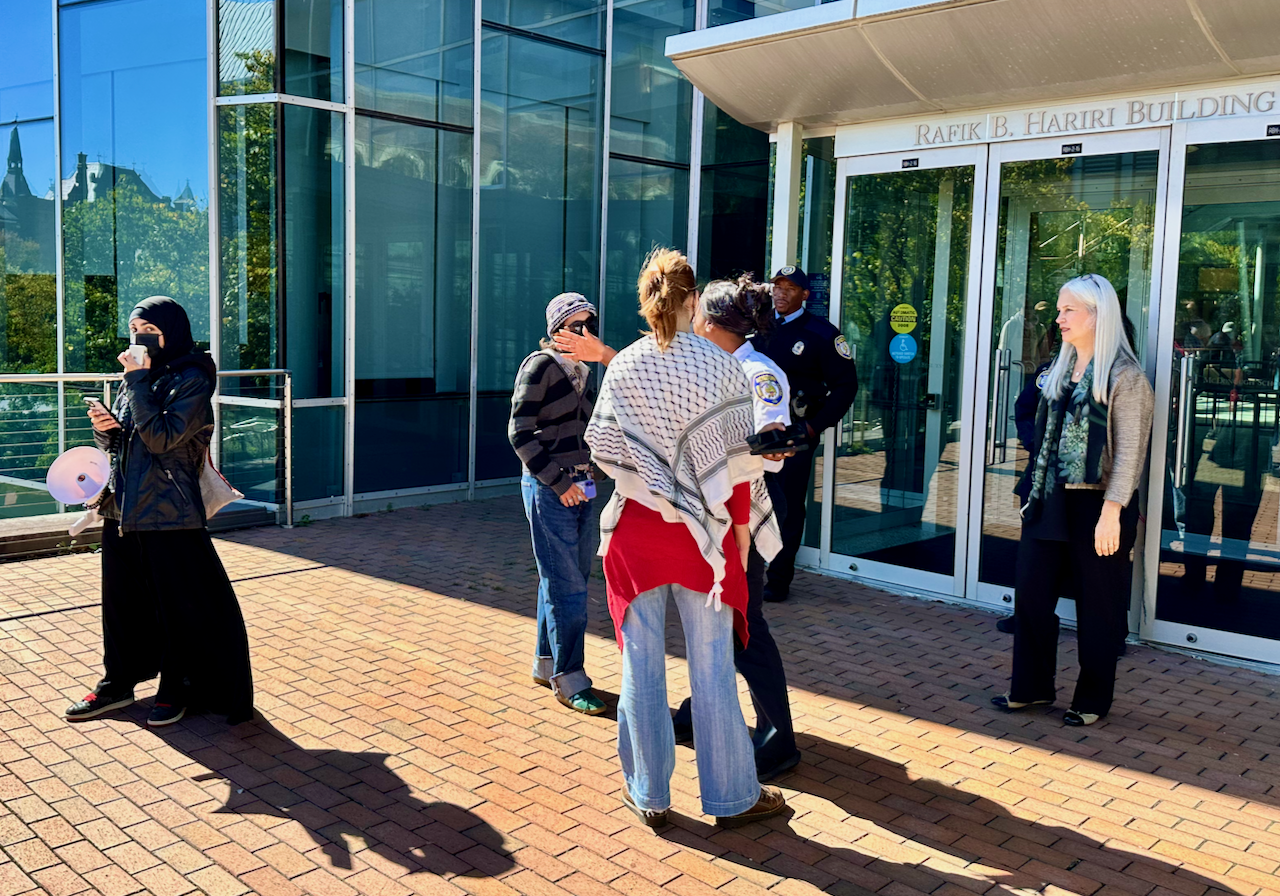
In 2024, Olmert and Al-Kidwa jointly authored a peace proposal for Palestine and Israel. In the proposal, Olmert and Al-Kidwa called for Gaza to demilitarize — including banning all military capabilities and forces not intended for internal peacekeeping — and for Israel to withdraw its forces from Gaza. The proposal did not call for Israel to demilitarize.
Al-Kidwa, who recently returned to Palestinian politics, was a prominent member of Fatah, the largest political party within the confederated parties of the Palestinian Liberation Organization, the internationally recognized representative of Palestine. Before the scheduled 2021 elections, Fatah leadership expelled Al-Kidwa after he endorsed an alternative list of candidates to the party list. Many experts believe this challenge was behind the Palestinian Authority President Mahmoud Abbas’ decision to cancel the local and presidential elections, a move which Palestinians claim violated their constitutional rights.
Al-Kidwa said he joined the event virtually from the West Bank city of Ramallah after being denied a visa to attend the event in person.
Olmert said that despite the entrenched conflict between Israel and Palestine, he believes a future of friendship is possible.
“After all that has happened, all the blood and the confrontations and the suffering and the destruction, can you overcome that? I’ll tell you, yes,” Olmert said. “If someone said, immediately after the Second World War, that the day will come that France and Germany, after killing each other by millions, will become the greatest friends in Europe, less than 50 years after the mutual destruction that characterized their relations. But it happened.”
“It will happen here,” Olmert added. “Our job — his and mine — is to believe that it can be done.”


